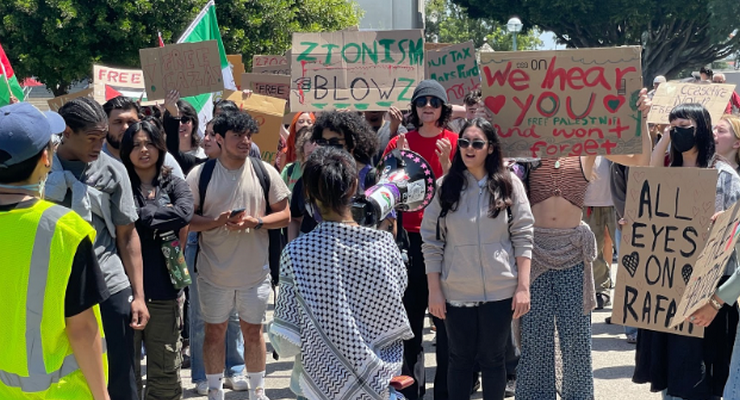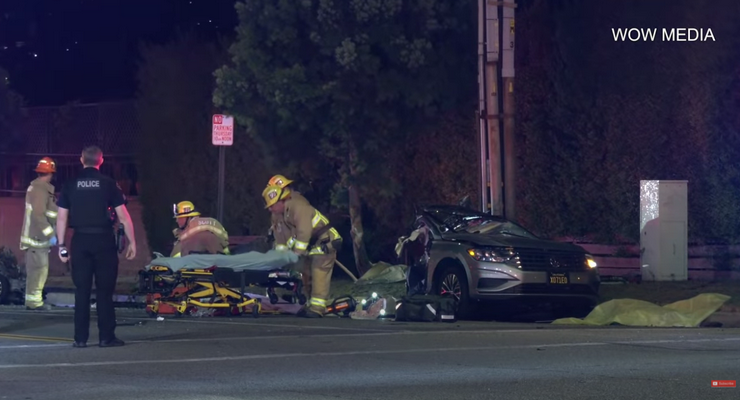City officials said Wednesday that Pasadena Chief of Police Phillip Sanchez has revised key provisions of his Department’s body-worn camera policy in response to public reaction, including softening of the original policy’s “hardline stance” which favored barring the release of police videos.
“The changes were made in response to public comment and testimony we heard last year,” City Manager Steve Mermell said. “For instance, there was a concern that the cameras will be used as a tool for surveillance. That was never the intent of the program. So we thought we could probably assuage that concern by adding some language to clarify the intent.”
The decision to make the changes came after public outcry, a lawsuit filed by the Pasadena branch of the NAACP and a proposal by a City Councilmember to open discussions on how the Council itself could countermand some of the Policy’s provisions erupted in the days following the November 7, 2016 release of the original body camera policy.
Lawyers representing the NAACP said two of the four major reforms that police activists have advocated for in the policy have now been addressed by the changes just announced.
In a press release Wednesday, civil rights attorneys Skip Hickambottom and Dale Gronemeier said they will be meeting with the NAACP executive committee to “decide how to proceed with the lawsuit in light of those changes to the policy.”
Arguably the original policy’s most controversial provision labelled all video recorded on police body camera “investigative materials,” which made the videos exempt from public disclosure. Activists said they were outraged, claiming that provision would prevent the release of videos to the public and could cover up police wrongdoing.
The new revisions replace that provision with a looser policy, which affirms a commitment to “endeavor to release BWC (body worn camera) recordings to the greatest extent possible.”
However, the new changes state, video still may not be released to the public if it would:
a. endanger the safety of a witness or another person involved in the investigation,
b. jeopardize the successful completion of an investigation or
c. violate local, state, and/or federal laws, including but not limited to, the right of privacy,
d. or involves other mitigating circumstances such as potential civil litigation.”
“There are instances when we won’t be able to, such as evidentiary or it may jeopardize our continuing investigation, or if there’s the possibility of jeopardizing someone’s safety by revealing the video,” Pasadena Police Lt. Vasken Gourdikian explained.
Gourdikian also pointed to a revision which adds wording into the policy that he said protects First Amendment free speech and activity, effectively prohibiting use of the body-worn cameras to carry out any form of political surveillance.
“During First Amendment protests or marches, where people are exercising their First Amendment rights, so long as it’s peaceful and no laws are being broken per se and people are acting in accordance with the law, in those types of circumstances, we won’t necessarily have the body-worn cameras on or record members’ activities,” Gourdikian said.
Mermell said the new changes address three of the four major issues contained in the NAACP lawsuit and which arose in public comments during the discussions at City Council.
Those four issues, Mermell said, deal with whether an officer is permitted to review the tape in an administrative investigation, whether an officer has the discretion to turn the camera on or off during an incident and how much discretion he ought to have, whether the cameras would be used for surveillance, and the release of video footage.
“On the issue of release, we made some language changes there to indicate that, as a general rule, we are supportive of release, but there are some instances where release would not be appropriate or at least requires some consideration as to whether to release or not,” Mermell said. “It doesn’t mean that we never would release it. It just means that we wouldn’t automatically be expected to release it.”
Attorney Hickambottom, also a member of the local NAACP Executive Committee, praised Mermell and Pasadena City Mayor Terry Tornek “for listening to the voices of the citizenry and improving the body worn camera policy.”
But Hickambottom and Gronemeier also said the exceptions to public disclosure or release of body-worn camera video, as stated in the policy, were “still too broad.” It specifically pointed to the exception for potential civil litigation as “untenable.”
“Experience shows that trying to suppress video recordings of shootings puts the police in a losing position because the public will not stand for it; suppression just gives the police a black eye,” the lawyers said. “The Pasadena Police Department would be better served by eliminating that exception.”














 0 comments
0 comments


